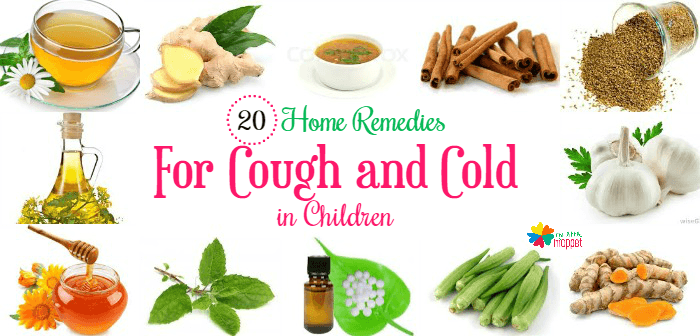Table of Content
Non-dairy frozen items are preferred because in some individuals dairy products can more mucous, which can further irritate the throat. Slippery elm can be particularly effective when used in a lozenge as it can help prolong the pain-relieving effects. Also known as Indian elm, moose elm, and sweet elm, slippery elm is believed to help coat the throat. It is considered a demulcent, which means it can help relieve irritation of the mucous membranes in the mouth by forming a protective film. To make the raw garlic easier to ingest, you can mince it and add some honey or olive oil.
Nasal congestion is a common issue in children and infants. Congestion is when your nose becomes stuffed up and inflamed. Minor illnesses are the most common causes of nasal congestion. For instance, a cold, the flu, and sinus infections can all cause stuffy noses. Illness-related congestion usually improves within 1-2 weeks. Home remedies may be enough to alleviate nasal congestion, particularly if it’s caused by the common cold.
Treating body aches and pains
If you experience chronic congestion, speak to a doctor to investigate the underlying problem and determine the best course of treatment. In this case, medical treatment may be needed, especially if your condition is painful and interfering with your everyday activities. Don’t smoke when your kid is suffering from cough and cold, as it may irritate the airways making it difficult for the child to breathe. Besides, keep him/her away from other sources of smoke, like wood-burning fires and grills. If your child is 4 years old or more, you can give him/her sugar-free hard candies, frozen berries, Popsicle, cough lozenges, or crushed ice to suck on. These cold things will relieve him/her from scratchy throat.
Others show some reduction in the severity and duration of cold symptoms when taken in the early stages of a cold. Different types of echinacea used in different studies may have contributed to the mixed results. These attack bacteria, but they're no help against cold viruses.
When to Call a Healthcare Provider
Roast some leaves of Aloe barbadensis and extract its juice. Ginger is known for its anti-inflammatory properties. Everything from an upset stomach to nausea can be remedied with a bit of ginger.
Some supplements interact with medicines or have side effects. Cough expectorants, which help thin and bring up mucus from a wet cough and lubricate the respiratory tract. Cough suppressants, which reduce a dry cough by blocking the coughing reflex. Smoking damages the bronchial tubes and breaks down the body’s defense against infection. Inhaling smoke can trigger severe fits of coughing if a person has bronchitis.
Give your Kid Honey to Treat Cough
The microbes that cause pneumonia usually affect an individual’s lungs and air sacs. This leads to inflammation of the lungs, accompanied by a severe cold and cough, and breathing difficulties in some cases. Ginger is another herb that can help treat pneumonia naturally. With its anti-inflammatory and antibacterial properties, ginger is capable of fighting the infectious microbes that cause pneumonia , . It also acts as a mucolytic, which means it helps to expel mucus and catarrh from the bronchial ducts, thus easing breathing.

Pneumonia, when treated in its early stages, can be easily cured by using the above home remedies. You can also take some preventive tips to avoid the recurrence of this infection. Willow barks contain polyphenols and flavonoids that have antiseptic and fever-reducing properties . These compounds also improve your overall immunity. Hence, willow bark is a great option for treating pneumonia. Many vegetable juices are capable of increasing your immunity and accelerating your recovery from this contagious infection.
Croup Cough Symptoms + 6 Natural Remedies
Acute tonsillitis lasts from one to two weeks while chronic tonsillitis can last from months to years. Pneumonia is a microbial infection of the lungs that can affect breathing and lung functioning. You are more likely to develop pneumonia if you are battling the flu, a cold or have underlying health conditions like diabetes or asthma. Some common signs and symptoms to look out for include productive cough, chest pain, wheezing, and breathing difficulties. A wet, productive cough is almost always a symptom of a viral or bacterial infection, especially in children.
One of the main symptoms of bronchitis is fatigue. The infection and the persistent cough that comes with it can cause extreme tiredness. A good night’s sleep can repair tissue damage, increase energy levels, and assist recovery from bronchitis. Try eating an orange or drinking some fresh orange juice every day during cold season. While this antioxidant doesn’t necessarily prevent colds, vitamin C does boost the immune system and may help reduce the length of a cold. While more research is needed, research suggests that taking vitamin C as prevention may reduce the length of symptoms if you get sick with a cold.
Echinacea seems to be most effective if you take it when you notice cold symptoms and continue it for seven to 10 days. It appears to be safe for healthy adults, but it can interact with many drugs. Check with your doctor before taking echinacea or any other supplement. However, some studies have found that taking vitamin C before cold symptoms start may shorten the length of time you have symptoms.

Any substance that causes an allergic reaction or asthma attack can exacerbate your COPD symptoms. Learn how to identify and avoid common allergens. There’s some evidence that bromelain supplements and probiotics can help ease a cough, but more evidence is needed. Additionally, if your cough is caused by GERD, avoiding trigger foods may help.

No comments:
Post a Comment